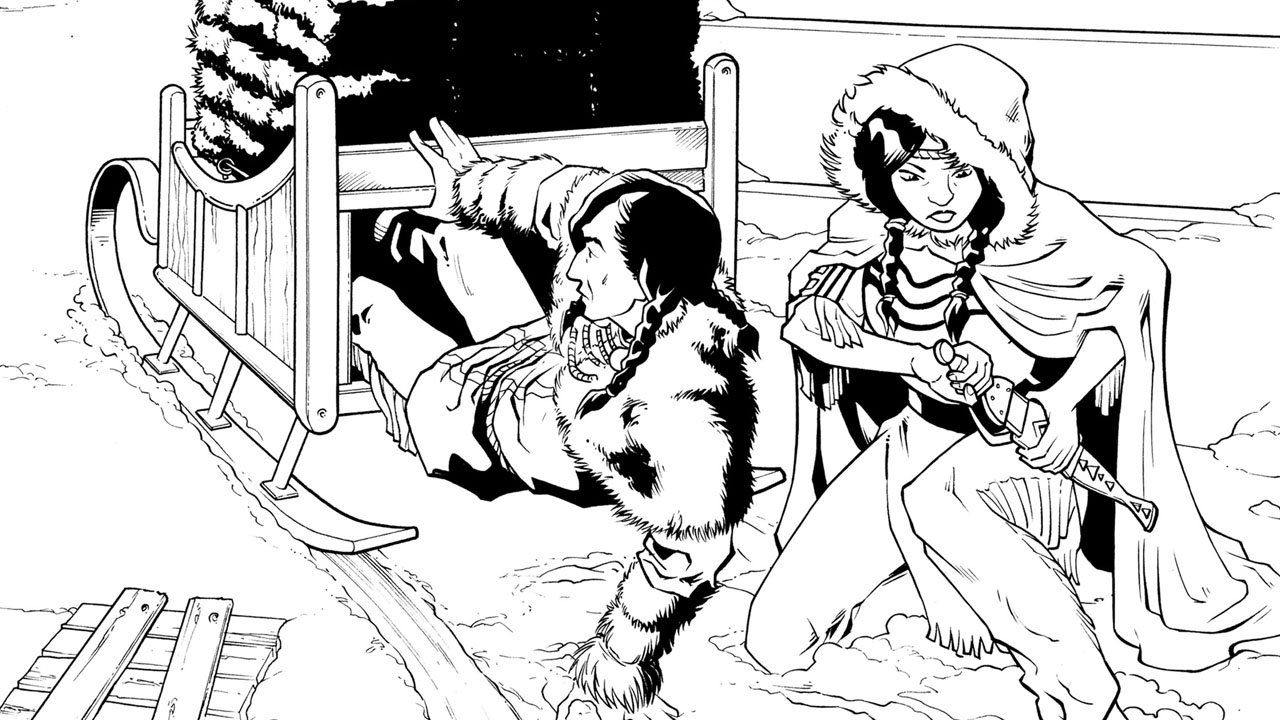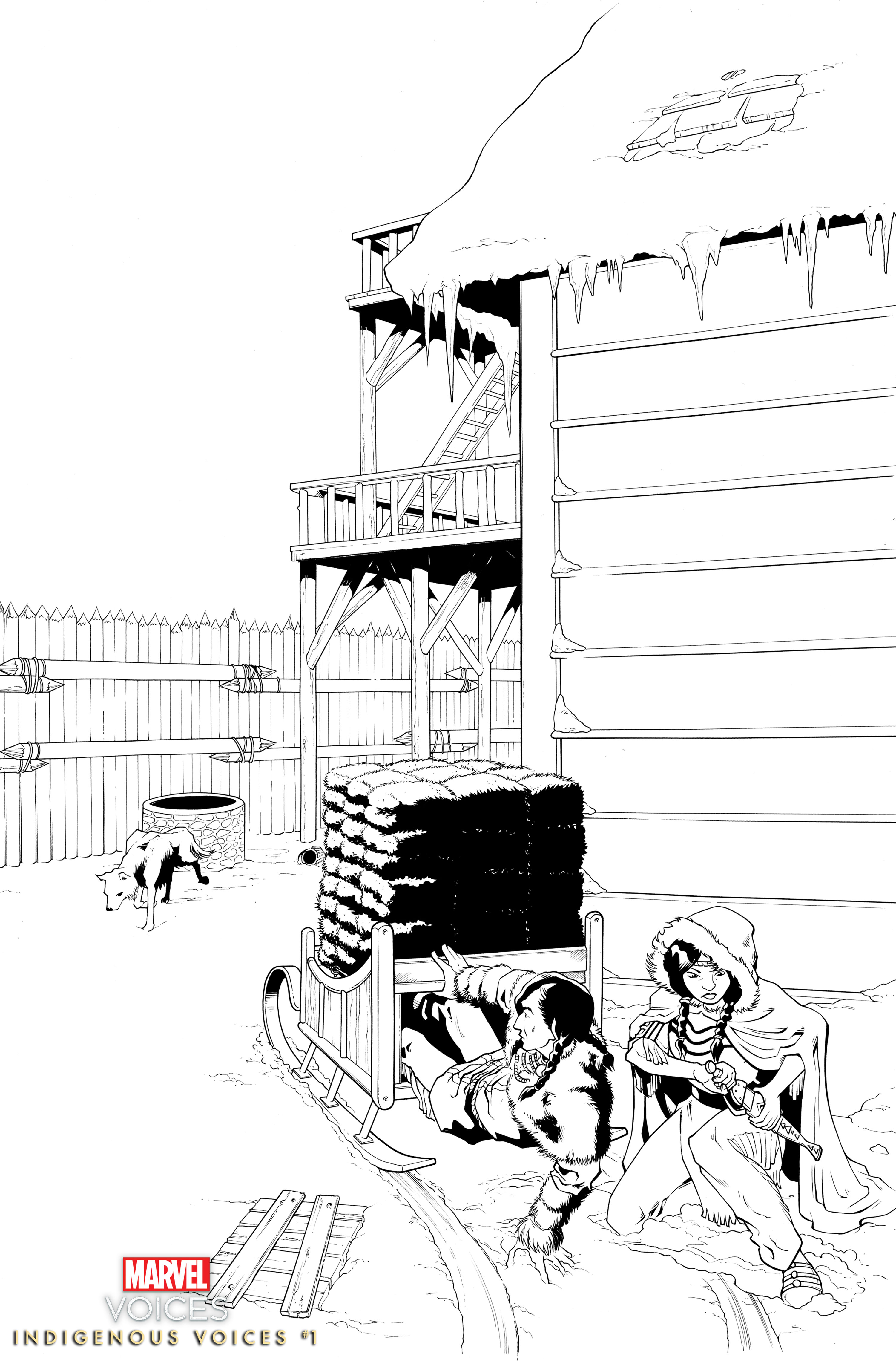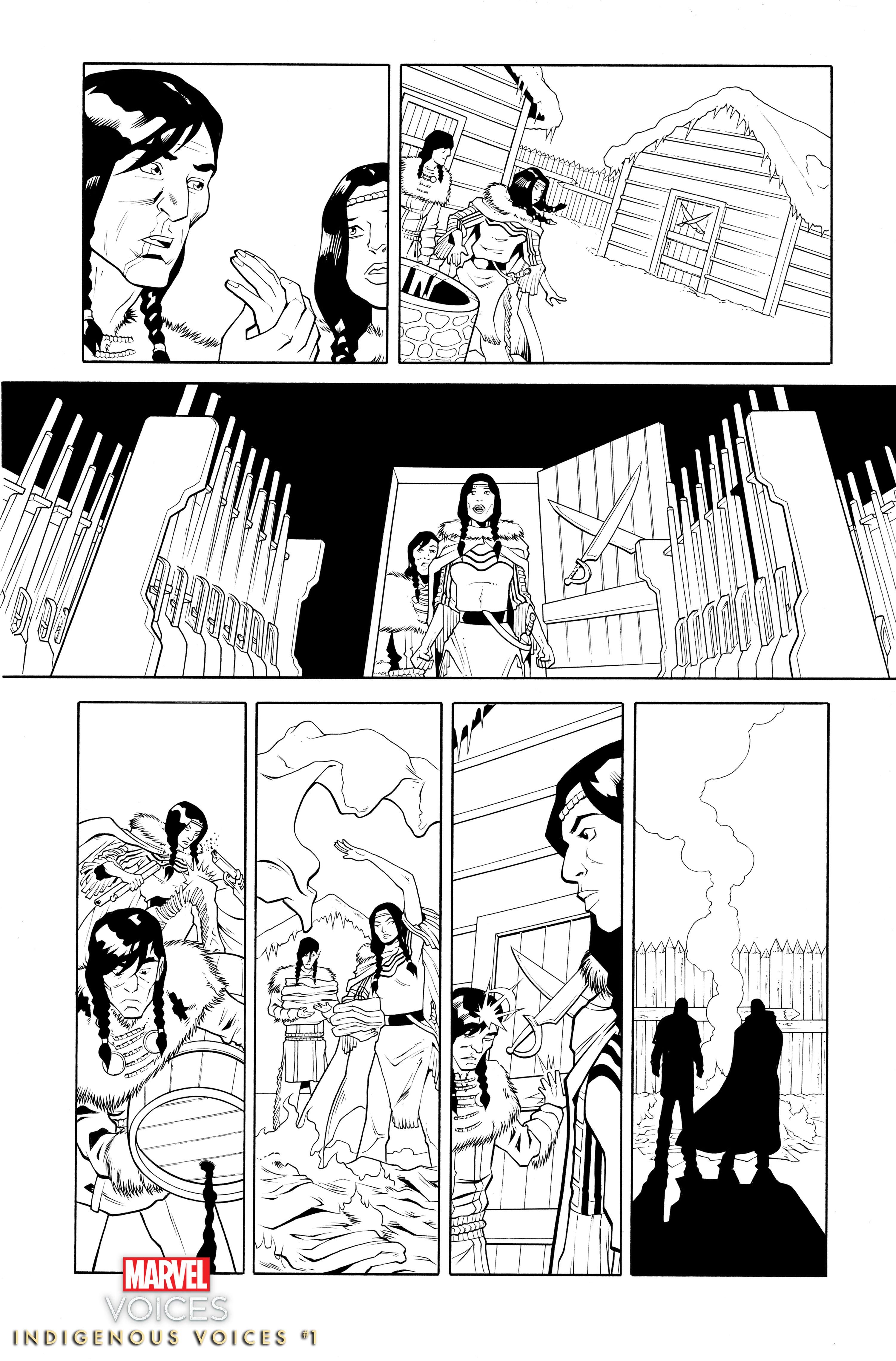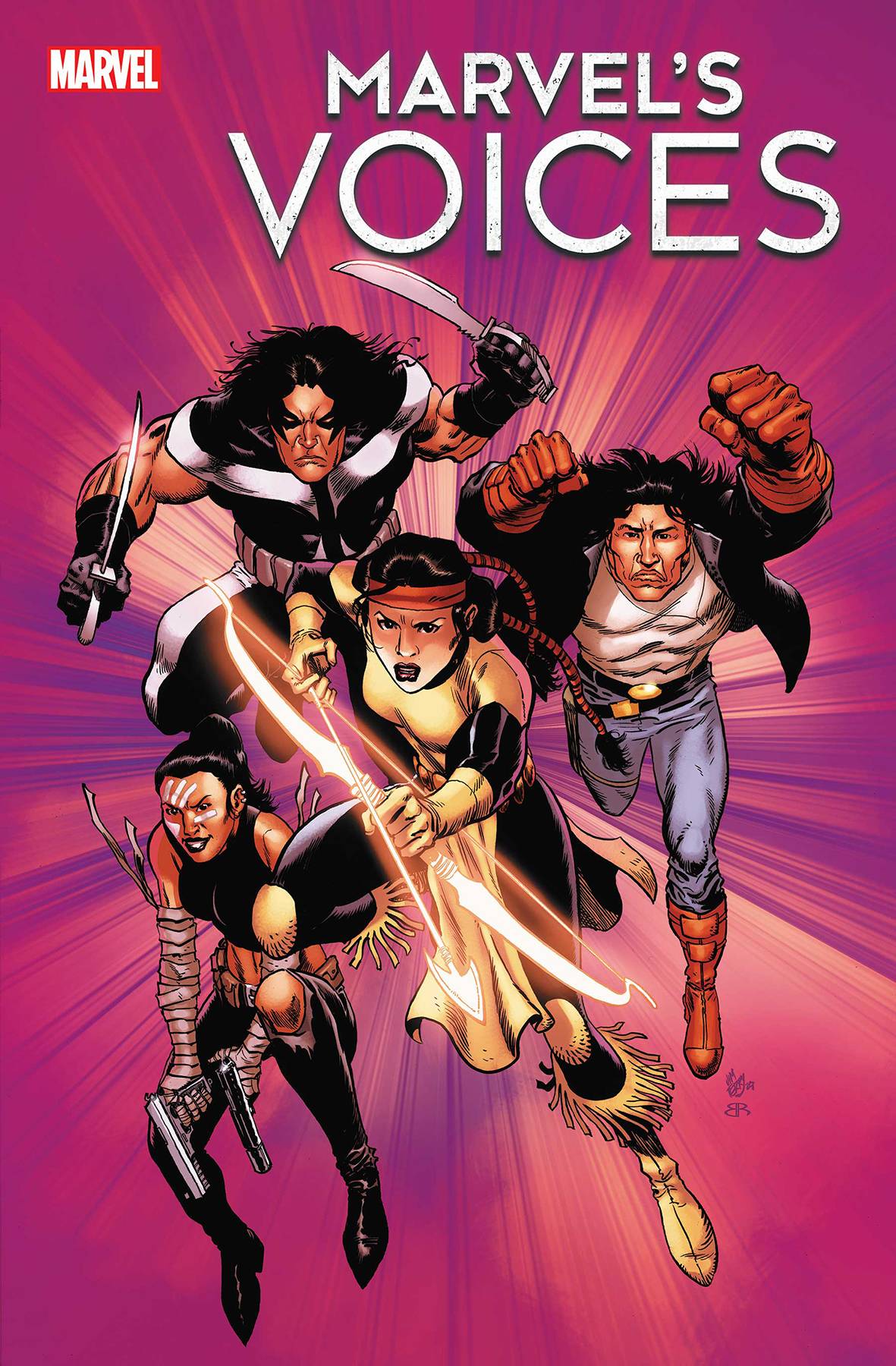Marvel's Silver Fox returns, thanks to Stephen Graham Jones for Indigenous Voices
The Blackfeet Nation author Stephen Graham Jones finds a character with a common heritage for Marvel debut

Stephen Graham Jones has made his name for literary-minded genre fiction prose stories and won, along the way a Bram Stoker Award and a National Endowment for the Arts fellowship - but now in November 2020, he's attaining one of his real goals: writing a story for Marvel.
Jones, a long-time comics reader (and Wolverine fan), is writing a Silver Fox story for Marvel Comics' upcoming Indigenous Voices anthology, which spotlights the company's Native American and First Nations characters.
Ahead of Indigenous Voices' November 18 debut, Newsarama spoke with Jones about his Silver Fox story, why he chose that character for his Marvel debut, and his deep roots with comic books.
Newsarama: For this anthology, you choose to write a story about Silver Fox because of a shared heritage. Can you tell us about that?

Stephen Graham Jones: Silver Fox was an easy choice. She's Blackfoot, I'm Blackfeet, but, back when, before the 49th parallel, we — Blackfeet — weren't divided from the Blackfoot by any national lines, so we ran together a lot more. Same language, same life. It's the difference in Siksika and Piikani, and, I don't mean to say that's no difference, because it is, but it's a lot less different than between us and the Crow, say, or the Lakota.
So, selecting Silver Fox to write just felt right. I felt like I knew her, if that makes sense.
Nrama: Definitely. Once you came down to her as a character, what did you gravitate towards story-wise?
Get the best comic news, insights, opinions, analysis and more!
Jones: Well, since she's pretty officially dead now, I had to dial back into when she wasn't to find a story, of course.

She's been all over, too, but the time that interested me most was that kind of open, untold space before she met Logan. I don't imagine she was just standing around in her camp waiting for him to come sweep her off her feet, I mean. She was out there doing stuff, pushing back against settler encroachment, which, in the 19th century in Canada, is mostly going to be the fur industry and the military.
Nrama: Tell us more about this story.
Jones: It's her and her first husband sneaking into a fort and causing a ruckus that'll hopefully mean not just the end of that specific establishment, but of all these invaders, for good. And, turns out her husband has some maybe-mutant ability of his own...
Nrama: In an interview with Comic-Watch.com, you said that if this opportunity to write comic books had come to you in your early 20s you may have pursued it sooner, and not even gone on to your prose fiction career. Can you tell us about your comic fandom, even before you thought about comics creating?

Jones: You can find the long version of my lifelong love affair with comic books over at Tor.com, but, in short, I found an issue of Secret Wars on the round rack at a gas station when I was 11 or 12, and I haven't stopped reading them since.
I still teach [the first] Secret Wars in my comic book course, too. A story dreamed up to sell action figures probably shouldn't have been as thrilling and good and important as this was, but, somehow, some way, it is. Even when I clear the fog of nostalgia from my lenses, I mean, Secret Wars holds up.
Nrama: This isn't your first comic book; I found one you did called My Hero. How long have you had an interest in making comic books, Stephen?

Jones: I have done a smaller one, too, 13th Night — a Shakespeare thing that was in conjunction with the first folio touring around. And I've got a graphic novel coming out as well.
I've had the comic book bug since . . . probably the early '90s, I'd say. Right around when X-Men relaunched, when Image Comics was the new kid on the block — when we all had to have four copies of every issue, to be sure to get all the variant covers.
Nrama: I assume your story for Indigenous Voices is already complete and drawn, so what's next for you and comics?
Jones: It's always about finding the right team, isn't it? I've got lots of comic book doors open right now, I just need to figure out which is best.
But, with doors open or not, I'll of course still be reading comics as always, and I'll be scripting them as well when I can. There's nothing like moving through panels, crafting a good page, and then starting over again.
Comic books aren't illustrated fiction, and they're not colored storyboards for movies. The medium of the comic book is its own unique, amazing thing, and, when done right, it accomplishes things that neither fiction nor film can touch.
Chris Arrant covered comic book news for Newsarama from 2003 to 2022 (and as editor/senior editor from 2015 to 2022) and has also written for USA Today, Life, Entertainment Weekly, Publisher's Weekly, Marvel Entertainment, TOKYOPOP, AdHouse Books, Cartoon Brew, Bleeding Cool, Comic Shop News, and CBR. He is the author of the book Modern: Masters Cliff Chiang, co-authored Art of Spider-Man Classic, and contributed to Dark Horse/Bedside Press' anthology Pros and (Comic) Cons. He has acted as a judge for the Will Eisner Comic Industry Awards, the Harvey Awards, and the Stan Lee Awards. Chris is a member of the American Library Association's Graphic Novel & Comics Round Table. (He/him)



